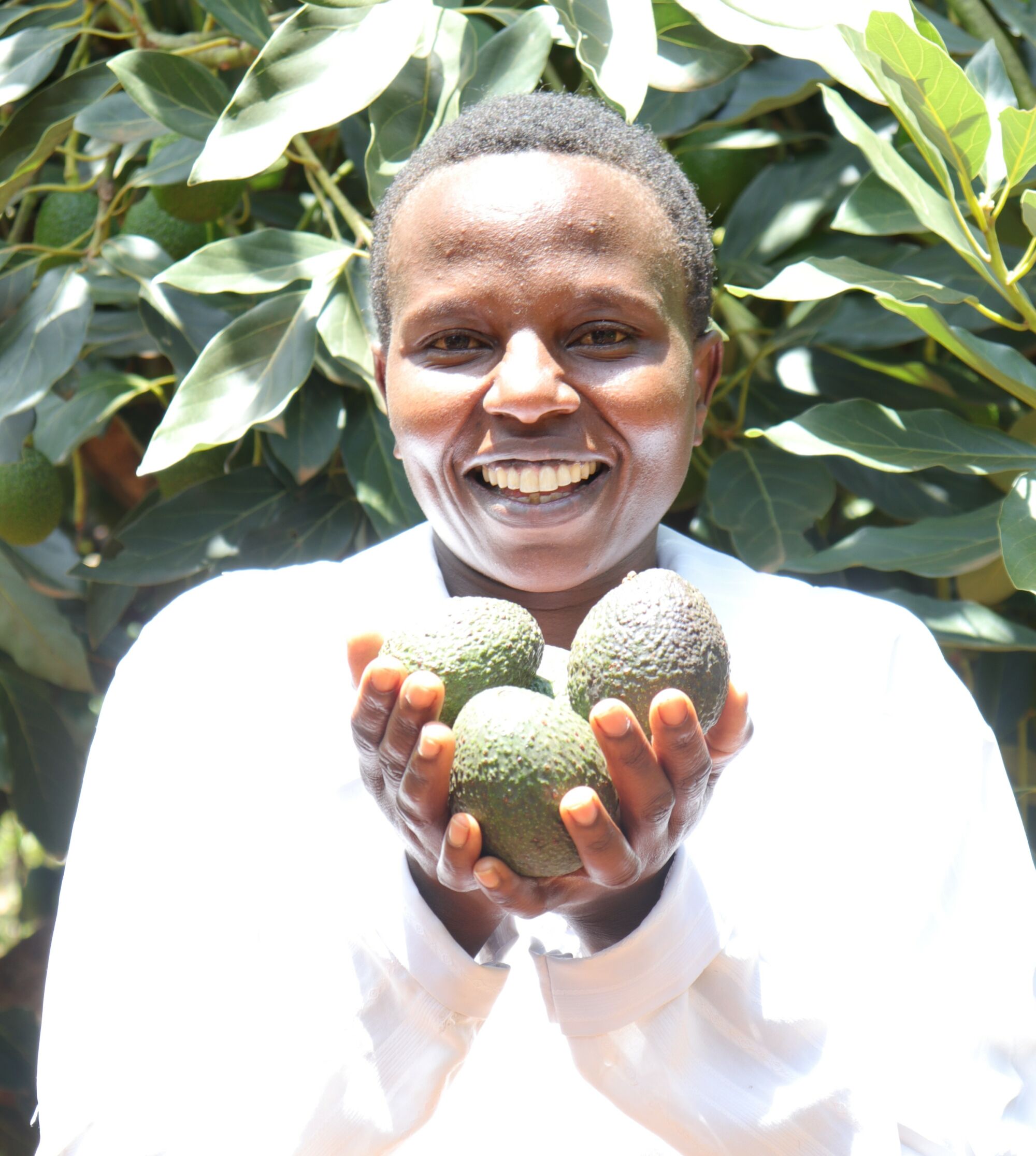In Kenya, Hass avocado is currently the most preferred by farmers due to its demand for export in the European markets. Hass Avocado farming requires low-cost input; it is low maintenance and has a readily available market worldwide. The fruits also mature after two years.
However, farmers have been greatly affected by the covid 19 pandemic. The government-imposed Lockdowns and curfews has disrupted both demand and supply of the agricultural product due to market inaccessibility. This has increased the vulnerability of avocado farmers.
Women farmers are agents of change and critical players in the food production system. However, they continue to bear the brunt of the pandemic. The outbreak of COVID-19 has devasted their role in the agricultural value chains. They struggle to access agricultural inputs such as fertilizers, farm equipment, and seeds and markets for their produce.
One such farmer is Teresia Nyambura from Gatundu North in Kenya. She is a mother of four children, two boys, and two girls. She mainly farms avocadoes and horticulture such as tomatoes, cabbages, kales, and passion fruits on her half-acre farm. “I currently have a total of fifty-two avocado trees, twenty-two mature trees, and thirty immature trees,” she illustrates. “A single mature avocado tree can produce close to 1500 – 3000 (500Kgs) fruits under good management practices,” she further explains.
Teresia painfully explains that immediately the government declared covid 19 as a pandemic and imposed lockdown and curfews; she has suffered greatly. She cannot access the market for her avocadoes. As a result, this has increased post-harvest loss. She laments that she has resulted in throwing away fruits and selling them at a throw-away price to pig farmers who buy them as feeds for their pigs.
Worse still, she had earlier sought the help of brokers or aggregators -who usually offer below-market prices- to find a market for her produce. Farmers often complain of being exploited by traders who reap up to twice as much as the producers.
They buy from farmers then sell to processors or exporting companies. They typically harvest the avocados themselves and organize transport to the processors/exporters via local collection and aggregation points.
“They usually select the large fruits and leave the small ones, and with no one to sell to, they turn to waste,” Teresia said.
She has been selling part of her produce at a throw-away price. She grieves that “previously, I have been selling one fruit at Ksh. 10 (0.80 SEK), raking a total of Ksh. 4000 (321 SEK) for 400 pieces.” However, through an aggregator, she sells at Ksh 93/= (7 SEK) per kg or 4kgs at Ksh 370/= (28 SEK).
As a result, this rendered her impoverished, exhausting all her savings. She, therefore, resulted in accessing finances from alternative solutions. “I have resulted to borrowing from a local Sacco to survive, and I am not even sure how I will be able to pay if this situation persists,” Teresia explains. She has now resulted in working as a manual labourer, picking tea in able neighbours’ farm to feed her family.
Nevertheless, all is not gloom for her. To benefit from her farming venture, she has joined an agricultural-based Community organization where local farmers have come together to support each other and jointly market their fruits.
The association is getting support from Farm Forestry Smallholder Producers Association of Kenya (FF-SPAK), a We Effect partner that promotes and champions farm forestry smallholders’ interests as lobby and advocacy, capacity building, promotion of rights and interests.
They are responsible for addressing inequalities and discrimination against smallholder producers, particularly the structural barriers that women and minority farmers face in society.
To support farmers cope with the adverse effects of COVID-19, We Effect continues to address unjust food production, marketing systems, and the lack of government strategies to acknowledge and address the most vulnerable and marginalized populations’ rights.
FF-SPAK is also linking farmers such as Teresia and her group with export companies. Teresia mentions with a grin that they recently signed a contract with an export agency to purchase their fruits and provide extension services at no cost. She and other farmers in her group will now market as a group and have a central marketing point or shed to be utilized as a grading point and a center for Information sharing and farmer training.
They have also developed quick win ideas to support farmers cope with the pandemic’s effects, such as training them on establishing kitchen gardens and integrating other crops such as cassava, bananas, and yams. They have also been trained as Trainer of Trainers (ToTs) to reach more farmers.
Restrictions are negatively impacting the ability of farmers to receive necessary advisory and support services for production activities. It will inspire them to put more effort into their farms and to produce quality fruits.
Despite the pandemic, stories of resilience like what is demonstrated by Teresia continue to emerge.
